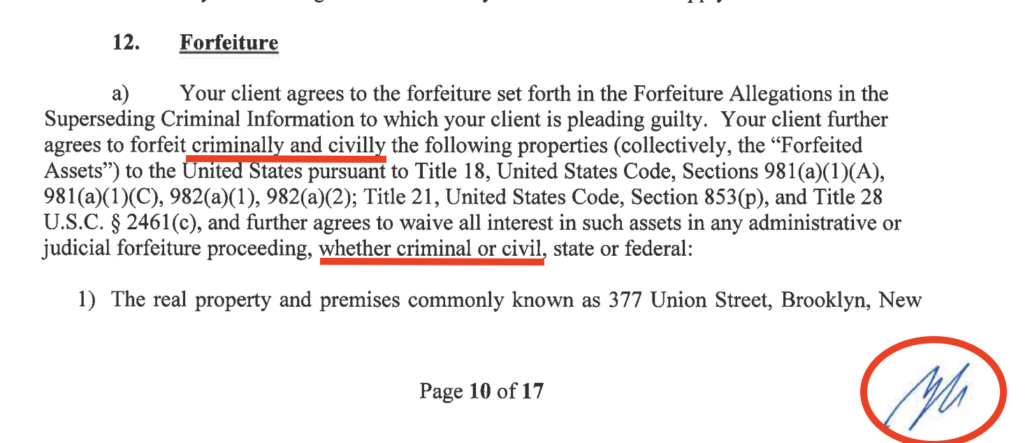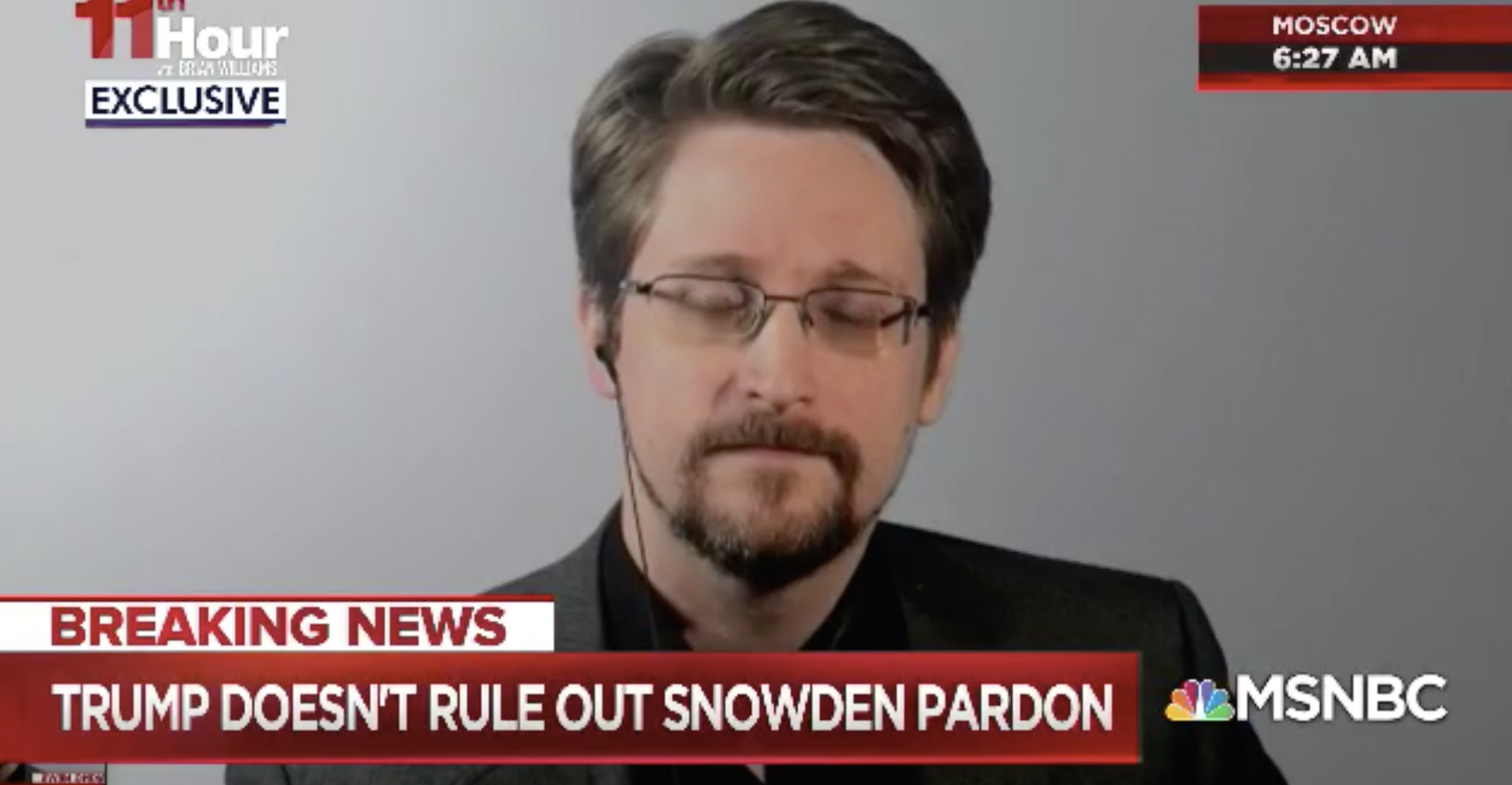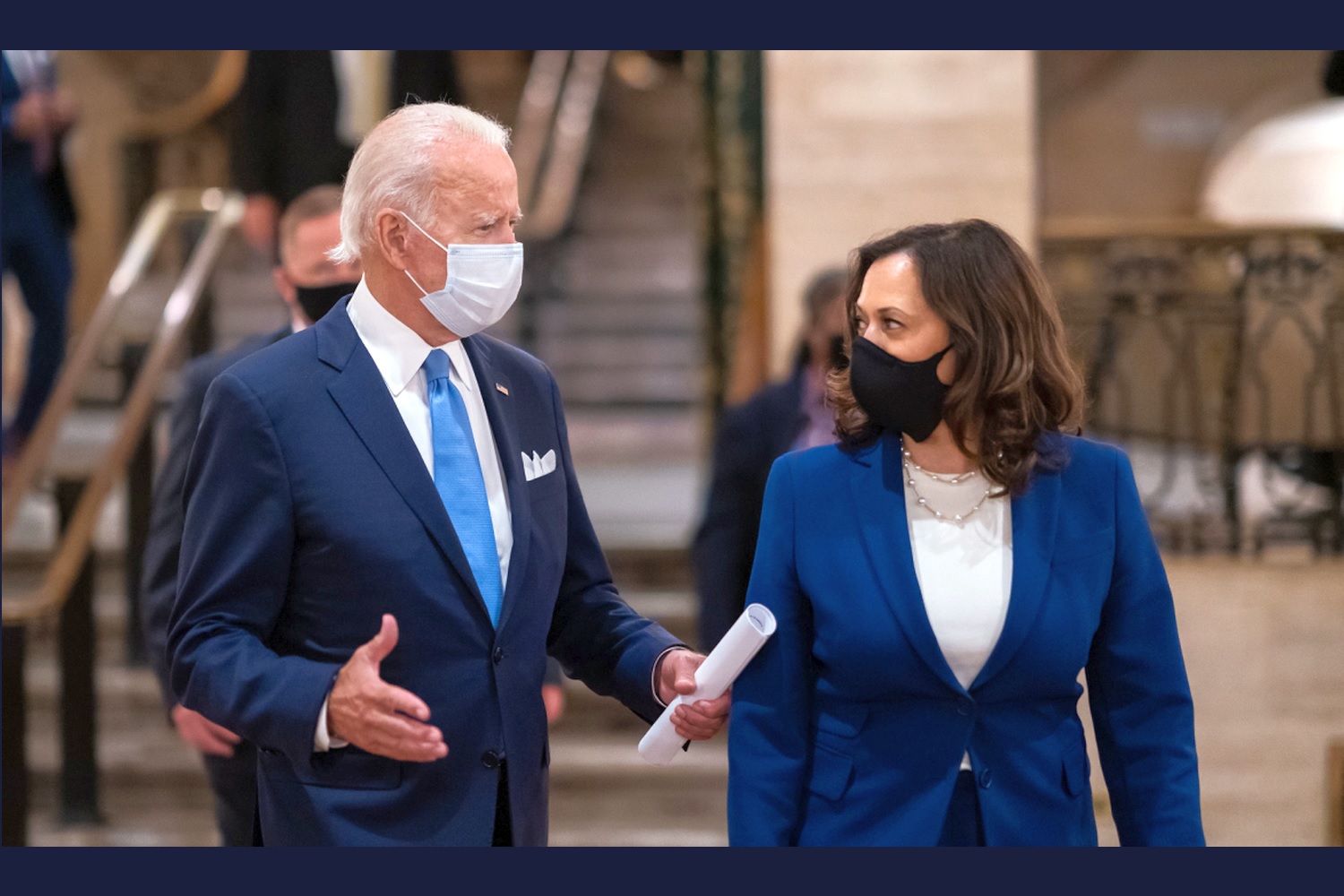Jack Goldsmith has written a piece arguing against a Trump prosecution under the Biden Administration. He’s wrong on a key point that many other people engaging in this discussion also are. He’s wrong about what crime might be prosecuted and whose DOJ investigated it.
Before I get to that, though, I want to critique two smaller issues in his post.
First, he links to the DOJ IG investigation on Carter Page, apparently suggesting it supports a claim that that report found there were inappropriate parts of the investigation into Donald Trump.
The first in this line was the investigation of the 2016 Trump campaign and presidential transition by the FBI and the Obama Justice Department, which continued with the Mueller investigation. Some elements of this investigation were clearly legitimate and some, clearly not.
Except that’s not what that report shows (even ignoring the report’s own problems). It shows that FBI followed the rules on informants and even on including an investigative agent in Trump’s first security briefing (after which Flynn promptly moved to cover up his secret relationship with Turkey). It shows that there were problems with the Carter Page FISA application. But the single solitary thing in the report that would not survive a Franks review is Kevin Clinesmith’s alteration of an email. Every single other thing would meet the Good Faith standard used in Fourth Amendment review. And all that’s separate from the question of whether Carter Page was a legitimate target for investigation, which the bipartisan SSCI investigation has said he was.
I also disagree with Goldsmith’s concerns about the status of the Durham investigation going forward.
But though Durham started out as a credible figure, the review was damaged from the beginning due to Trump’s and Barr’s ceaseless public prejudging of the case (and, for some, Durham’s response to one of Horowitz’s reports). And all of that was before Barr expanded the investigation into a criminal one and then later appointed Durham as a special counsel to ensure that his criminal investigation could continue into the Biden administration. Once again, the nation is divided on the legitimacy of all of this.
The third challenge, exacerbating the first two, is that these investigations—the FBI investigation of the Trump campaign and transition, the Durham investigation, and the Hunter Biden investigation—extended (or will extend) into an administration of a different party. That means that what began as a cross-party investigation where the worry was bias against political opponents will transform, in the middle of the investigation, into an intraparty investigation, where the worry will shift to one party’s desire for self-protection.
I think the Durham investigation is misunderstood by all sides. Even according to Billy Barr, Durham has debunked some conspiracy theories Republicans have floated and he appears to have moved beyond the question of whether the CIA wrongly concluded that Putin wanted to elect Trump. That means if he were to write a report, it would substantially consist of telling the frothy right that their conspiracy theories were just that, and that George Papadopoulos really did entertain recruitment by at least one Russian agent.
That said, the Durham investigation has, unfortunately, been hopelessly biased by Billy Barr’s work in at least two ways. Durham apparently believes that the treatment of partisan bias at DOJ has been equally applied, which is demonstrably false (which also means he’s relying on witnesses who have themselves committed the sins he has used to predicate his own investigation, using FBI devices to speak for or against a political candidate). More troublingly, every single legal document his prosecutors have filed thus far have betrayed that they don’t understand the most basic things about the counterintelligence investigations they’re focusing on. But because of that ignorance, I’m fairly confident that if Durham tried to prosecute people for the theories that Bill Barr has been pushing while micromanaging this, Durham’s prosecutors would get their ass handed to them. Plus, even without Biden’s AG doing anything, I think there’s a possibility that Durham’s independence can be put to good use to investigate the crimes that Barr’s DOJ may have committed in pushing these theories. And there’s an easy way to solve the political nastiness of Barr’s special counsel appointment: by swapping Durham for Nora Dannehy. In short, freed from the micromanaging and mistaken beliefs of Bill Barr, Durham may evolve into a totally useful entity, one that will debunk a lot of the bullshit that the frothy right has been spewing for years.
In any case, the only reason it would be perceived as a cross-party investigation was the micromanagement of Barr. The FBI is not a member of either party, and if Durham finds real crimes — like that of Clinesmith — by all means he should prosecute. Once he is freed of Barr’s micromanagement, though, he may discover that he was given a very partial view of the evidence he was looking at.
Which brings me to Goldsmith’s treatment of whether or not Trump should be prosecuted. Before giving three reasons why one shouldn’t investigate Trump, he lays out what he sees as the potential crime this way:
Many people have argued that the Biden Justice Department should continue this pattern by examining the criminal acts Trump might have committed while in office—some arguing for a full-blown broad investigation, others (like my co-author, Bob Bauer, in “After Trump”) for a measured, narrowly tailored one. I don’t think this is a good idea. I doubt Trump has committed prosecutable crimes in office (I am confident that obstruction of justice prosecution would fail), I doubt he will ever go to jail if he did commit criminal acts in office (which would make the effort worse than useless), Trump will thrive off the attention of such an investigation, and the Biden administration will be damaged in pursuing other elements of its agenda (including restoration of the appearance of apolitical law enforcement). But the main reason I am skeptical is that such an investigation would, in the prevailing tit-for-tat culture, cement the inchoate norm of one administration as a matter of course criminally investigating the prior one—to the enormous detriment of the nation. (I do not believe that federal investigations for Trump’s pre-presidential actions raise the same risk.
There are two problems inherent with Goldsmith’s logic here, problems that virtually all the other people who engage in this debate also make.
First, he assumes that any prosecution of Trump would have to engage in further investigation. Here’s just one of several places where he makes that assumption clear.
The investigation by one administration of the predecessor president for acts committed in office would be a politically cataclysmic event.
Goldsmith doesn’t consider the possibility that such an investigation was begun under Mueller and continued under Bill Barr, waiting for such time as Trump can be charged under DOJ guidelines. It’s odd that he doesn’t consider that possibility, because Mueller laid that possibility out clearly in the report, describing leaving grand jury evidence banked for such time as Trump could be charged (indeed, it’s fairly clear a January 2019 Steve Bannon grand jury appearance included such evidence). If Bill Barr’s DOJ conducted an investigation that shows Trump committed a crime, it would break out of the tit-for-tat that Goldsmith complains about.
Goldsmith also appears to believe, even in spite of Trump’s transactionalism, that any crime Trump committed in office would have begun and ended during his term of office.
Part of these two errors appear to stem from another one. Goldsmith clearly believes the only crime for which Mueller investigated Trump is obstruction and he dismisses the possibility that an obstruction prosecution would stick. I’m agnostic about whether that view of obstruction is true or not. Even just reviewing how the Mueller Report treated the Roger Stone investigation, though, I’m certain there are places where the Mueller Report protected investigative equities. That may be true of the obstruction case as well. If so, then it would suggest the obstruction case might be far stronger than we know.
But it is false that Mueller only investigated Trump for obstruction. That’s because Trump may have entered into a conspiracy with his rat-fucker. In addition to investigating Roger Stone for covering up who his tie to Wikileaks was, Mueller also investigated Roger Stone for entering the CFAA conspiracy with Russia, a part of the investigation that recently declassified information as well as the warrants in the case make clear continued after the close of the Mueller investigation. Not only did Mueller ask Trump about his contacts with Stone on the specific issue for which the rat-fucker remained under investigation after Mueller closed up shop, but Mueller’s last warrants listed Stone’s written record of his communications with Trump during the campaign among the items to be seized in the search of Stone’s homes. If Stone entered into the CFAA conspiracy with Russia and those contacts show that Trump entered into an agreement with Stone on his part of the conspiracy, then Mueller was investigating Trump himself in the conspiracy. There is no way you target Stone’s records of communications with Trump unless Trump, too, was under investigation for joining that conspiracy.
I know I’m the only one saying this, but that’s in significant part because — as far as I know — I’m the single solitary journalist who has read these documents (plus, the unsealed language showing the investigation into Stone on the CFAA charges got buried in the election). But the record makes this quite clear: by investigating Roger Stone, Mueller also investigated Donald Trump for joining the CFAA conspiracy with Russia that helped him get elected. And because Mueller did not complete the investigation into Roger Stone before he closed up shop, he did not complete the investigation into Donald Trump.
And while I’m less certain, abundant evidence tells us what Stone and Trump’s role in the conspiracy may have been: to enter into a quid pro quo trading advance access to select John Podesta files (and, possibly, optimizing their release to cover up the DHS/ODNI Russian attribution statement) for a pardon for Julian Assange.
Stone did something in August 2016 to obtain advance copies of the Podesta files that the frothy right believed would be particularly beneficial in attacking Podesta and Hillary. Days before the Podesta file release in October 2016, Stone and Credico appear to have started talking about a pardon for Julian Assange. After the release of the Podesta files, Trump discussed reaching out to Assange with more people, including Mike Flynn. And no later than 7 days after the election — and given Credico’s refusal to give a straight answer about this, probably before — Stone set out on an extended effort to deliver on that pardon. And Trump took an overt act, as President, to try to deliver on that quid pro quo when he ordered Corey Lewandowski to tell Jeff Sessions to shut down any investigation into the hack-and-leak (which would have shut down the investigation into Assange’s role in it).
I have no idea whether DOJ obtained enough evidence to charge a former president in conspiring with a hostile foreign power to get elected. The investigation into Stone’s role in the conspiracy may have shut down when Barr’s intervention in Stone’s sentencing led all four prosecutors to drop from the case, so it’s possible that a Biden DOJ would need to resume that investigation (and finish it up before statutes of limitation tolled). Still, as of October 1, when DOJ withheld almost the entirety of two interviews with Margaret Kunstler to protect an ongoing investigation, that part of the investigation was ongoing. So if you want to consider the possible universe of Trump charges, this is the possibility you’d need to consider: that after Mueller shut down but before the end of Barr’s tenure, DOJ acquired enough evidence to prosecute Donald Trump once he becomes available to prosecute under DOJ rules.
I think there are other instances where Trump cheated to win in criminal fashion (even ignoring the hush payments for which he got named in Cohen’s charging documents). For example, Barr very obviously violated DOJ guidelines in his treatment of the whistleblower complaint about the Volodymyr Zelenskyy call, and with the evidence that OMB, State, and DOD withheld from the impeachment inquiry and witnesses subject to subpoena (indeed, at least some of whom will likely have no Fifth Amendment privileges after a pardon), the impeachment case is likely far stronger than Goldsmith imagines. Plus, there is an obvious tie to the SDNY investigation into Lev Parnas (where the whistleblower complaint would have been referred had Barr not violated DOJ guidelines). So on that case, it might be a question of Biden shutting down an ongoing investigation, not one of starting a new investigation.
Perhaps the most difficult and controversial decision for a Biden AG will be whether to reopen the investigation into the Egyptian payment Trump may have gotten in 2016 that kept his campaign afloat, one that SCOTUS reviewed (for the Mystery Appellant challenge) and sustained a subpoena for. Per CNN, DOJ doesn’t yet have enough to prosecute that, but that’s because DOJ chose not to subpoena Trump Organization for documents. And a Biden Administration could sanction the Egyptian bank to require it to cooperate in a way they refused to do under Mueller.
But those two instances can’t be shown via the public evidence. The overt act that Trump took in response to Roger Stone’s request — one Stone documented in a DM to Julian Assange — is public. Importantly, this would be a conspiracy that started before Trump got elected and extended into his presidency.
If you want to imagine whether Biden would prosecute Trump, you have to consider the possibility that he would prosecute Trump for crimes Bill Barr investigated.







